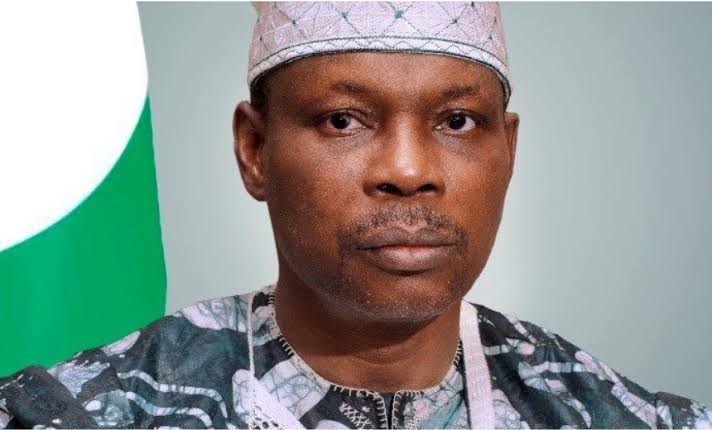News Investigators/ The Federal Government has underlined the need for stronger collaboration among researchers, health professionals, and policymakers to advance Nigeria’s health sector.
Iziaq Adekunle Salako, Minister of State for Health and Social Welfare, highlighted that continuous innovation and equity are central to the ministry’s agenda.
Mr Salako made the remarks at a three-day national conference in Abuja on Monday, themed “Exploring Excellence in Ethical Conduct, Leadership for Research Integrity Through Empowerment” (EXCEL-RITE).
The News Agency of Nigeria (NAN), reports that the conference was organised in partnership with the National Health Research Ethics Committee (NHREC) and the Institute of Human Virology Nigeria (IHVN).
EXCEL-RITE seeks to promote a culture of ethical and transparent research across academia, government, and industry.
Mr Salako, represented by Dr Lolade Adeyemi, the ministry’s Special Advisor on Research and Innovation, reaffirmed the ministry’s commitment to enhancing quality healthcare and promoting sustainable solutions.
“The theme of this conference resonates deeply with our mission at the Federal Ministry of Health and Social Welfare.
“We are dedicated to continuously enhancing quality, promoting equity, and championing sustainable innovation in our health systems,” he said.
He commended the conference organisers for uniting top health leaders under one platform, stressing that such initiatives are vital for developing strategies to tackle Nigeria’s complex health challenges.
The minister urged participants to actively engage, share insights, and build lasting partnerships that could lead to tangible improvements in Nigeria’s health outcomes.
He stressed the importance of interdisciplinary collaboration in research and policy formulation, adding that collective expertise and shared objectives are critical for the country’s health security.
Aba Sagoe, Board Member of IHVN, highlighted the urgent need for increased research funding in Nigeria.
“Universities are very much in need of funding, particularly for research. There is so much to be done, not only in medicine, but also in pharmacy, agriculture, and many other fields,” she said.
Mr Sagoe noted that many Nigerians are eager to engage in research but lack the necessary institutional support and funding to do so.
“We have to really go into research because there’s so much to be done.
“Many people here in Nigeria would like to enter into research areas, but they need encouragement and, most importantly, funding to make it possible.
“I’m very happy to be here. I am also learning, and I hope to come back with lots of information and encourage others to pursue research in Nigeria,” she said.
Charles Mensah, IHVN’s Chief Operating Officer and Principal Investigator for the conference, explained that EXCEL-RITE was built on a vision to foster responsible conduct in research, enhance collaboration, and drive impactful change across disciplines.
Mr Mensah said the conference aimed to promote research integrity, establish best practices and standards to uphold the credibility of research processes.
According to him, it will also encourage adherence to ethical principles to prevent misconduct in scientific endeavours.
He further explained that the conference would strengthen capacity building by equipping researchers, students, and institutional leaders with the knowledge and skills to implement ethical research practices.
Additionally, he said it would facilitate cross-disciplinary learning through training, workshops, and collaborative programmes.
“The conference will enhance collaboration and policy development by bridging gaps between academia, government, and industry for effective partnerships.
“It will also support the development of policies that align with global standards for research ethics and governance,” he said.
He added that it would empower researchers to address societal and public health challenges through innovative and ethically sound studies, promoting the use of research findings for evidence-based policy formulation and implementation.
“It will also strengthen institutional frameworks to ensure long-term adherence to ethical and professional standards, encouraging institutions to adopt and implement lessons learned during the conference.”
NAN recalls that the conference brought together a diverse array of stakeholders, including researchers, health workers, and policymakers, all focused on finding innovative solutions to improve the well-being of Nigerians.
NAN
